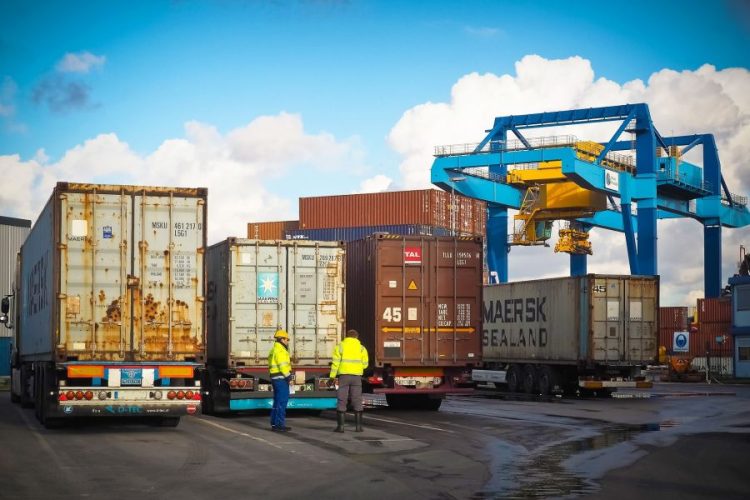Understanding the Basics of Freight Transportation

Categories :
Freight transportation plays a crucial role in global trade, facilitating the movement of goods from one place to another. Whether it's delivering products to retail stores or shipping raw materials to manufacturers, understanding the basics of freight transportation is essential for businesses and consumers alike. In this blog, we will explore the different modes of freight transportation, the process involved, key players in the industry, factors influencing freight transportation, challenges faced, and future trends.
Modes of Freight Transportation
Road Transportation
Road transportation plays a crucial role in the freight industry, providing efficient and reliable services for the movement of goods. In Australia, this freight transportation mode is considered the backbone of the country’s economy. If you look around, you’ll find several reputable freight companies in Brisbane, Sydney, Melbourne, and other cities in the country that specialize in road transportation. These companies offer a wide range of services, including express road freight, heavy haulage, distribution, and logistics solutions. The same can be said of road freight transportation worldwide, where they play significant roles in the economies of the countries they provide their services. Whether it's local shipping or interstate haulage, freight companies are equipped to handle various types of cargo and ensure the smooth movement of goods across cities, regions, or countries.
Rail Transportation
Rail transportation offers an efficient and cost-effective way to move large volumes of goods over long distances. Trains can carry a variety of cargo, including bulk commodities like coal and grain, as well as intermodal containers. The benefits of rail transportation include lower fuel consumption, reduced carbon emissions, and less reliance on road infrastructure. However, it may not be as flexible or accessible as road transportation, with limited access to inland areas and certain destinations.
Air Transportation
Air transportation is known for its speed and reliability, making it ideal for time-sensitive shipments and international trade. Cargo planes can transport a wide range of goods, including perishables, pharmaceuticals, and high-value products. The advantages of air transportation include quick delivery, global reach, and enhanced security measures. However, airfreight can be expensive, especially for bulky or heavy shipments, and is subject to strict regulations and limited capacity.
Sea Transportation
Sea transportation is the backbone of international trade, handling the majority of global cargo shipments. Container ships, bulk carriers, and tankers are used to transport goods across oceans and waterways. Sea transportation offers cost-effective solutions for large-scale shipments, especially for non-perishable and low-value commodities. It also provides access to remote locations and reduces road congestion. However, it has longer transit times, requires efficient port operations, and may face challenges like piracy and weather conditions.
You can also check used containers for sale for shipping goods by sea. This option is suitable for businesses that require temporary storage or want to save money on purchasing new containers.
Freight Transportation Process
The freight transportation process involves multiple stages to ensure that goods are shipped safely and reach their destination on time. Let's take a closer look at these stages:
Booking and Documentation
The process begins with booking the transportation service and preparing the necessary documentation. One crucial document is the Bill of Lading (BOL), which serves as a contract between the shipper and the carrier. It includes details such as the origin and destination, type and quantity of goods, and terms of transportation. Additionally, customs clearance documents are required for international shipments, outlining the contents and value of the cargo.
Packaging and Labeling Requirements
Proper packaging and labeling are essential to protect goods during transportation and provide information for handling and identification. Different types of goods require specific packaging materials and techniques, ensuring they are secure and protected from damage. Labels should include important information such as the product name, weight, dimensions, handling instructions, and any hazardous material symbols if applicable.
Loading and Unloading Procedures
Efficient loading and unloading procedures are crucial to minimize delays and ensure the smooth flow of goods. Depending on the mode of transportation, this may involve using loading docks, pallets, or containers. Proper handling equipment, such as forklifts or cranes, should be used to load and unload the cargo safely. It is also important to consider weight distribution to prevent damage during transit.
Tracking and Monitoring Shipments
Tracking and monitoring shipments provide visibility and real-time updates on the location and status of goods. Technologies such as GPS, RFID, and IoT devices are used to track cargo throughout its journey, allowing shippers and customers to have control and confidence in the transportation process. This helps to identify potential delays or issues and facilitates effective communication between all parties involved.
Key Players in Freight Transportation
Several key players contribute to the smooth operation of the freight transportation industry. Let's take a look at their roles:
Freight Forwarders
Freight forwarders act as intermediaries between shippers and carriers, coordinating the transportation of goods from one point to another. They handle tasks such as booking cargo space, arranging documentation, and ensuring compliance with regulations. Freight forwarders leverage their expertise and network to optimize transportation routes and provide cost-effective solutions for shippers.
Carriers
Carriers are the companies responsible for physically moving the goods from the origin to the destination. They can be trucking companies, rail operators, airlines, or shipping lines. Carriers play a vital role in ensuring the safe and timely delivery of goods. They have the necessary infrastructure, equipment, and expertise to handle different types of cargo and navigate various transportation modes. Carriers are responsible for loading, transporting, and unloading the goods while ensuring they reach their destination in good condition.
Customs Brokers
Customs brokers specialize in managing the customs clearance process for international shipments. They assist shippers in complying with customs regulations, completing necessary paperwork, and paying import duties and taxes. Customs brokers work closely with government agencies to ensure smooth customs clearance, reducing delays and minimizing non-compliance risk.
Warehousing and Distribution Providers
Warehousing and distribution providers are also vital players in the freight transportation industry. They offer storage facilities and services for goods during transit or before final delivery. They manage inventory, handle order fulfillment, and optimize distribution networks. These providers play a crucial role in ensuring efficient supply chain management, enabling timely delivery and minimizing storage costs.
Factors Influencing Freight Transportation
Several factors influence freight transportation operations. Understanding these factors is essential for businesses to optimize their supply chains and make informed decisions. Here are some key factors:
- Distance and Destination: The distance between the origin and destination affects the choice of transportation mode. For short distances, road transportation may be preferred, while for longer distances, rail, air, or sea transportation may be more suitable.
- Nature of Goods: The type, size, weight, and perishability of goods impact the choice of transportation mode and packaging requirements. Some goods may require specialized handling, such as refrigeration for perishables or special permits for hazardous materials.
- Cost: The cost of transportation, including fuel, labor, tolls, and fees, influences the choice of transportation mode. Cost considerations also include inventory carrying costs, warehousing fees, and customs duties.
- Time Sensitivity: The urgency of delivery impacts the choice of transportation mode. Air transportation is often preferred for time-sensitive shipments, while sea transportation may be suitable for less time-sensitive cargo.
- Infrastructure: The availability and quality of transportation infrastructure, such as roads, railways, ports, and airports, influence the efficiency and reliability of freight transportation. Well-developed infrastructure enables smoother operations and faster transit times.
Challenges in Freight Transportation
Freight transportation faces several challenges that can impact operations and disrupt supply chains. One of the primary challenges is congestion, both on roads and at ports. Traffic congestion leads to delays, increased costs, and inefficiencies in transportation. Additionally, capacity constraints can pose challenges, especially during peak seasons or unexpected surges in demand. Limited capacity in terms of vehicles, vessels, or warehouse space can result in delays and difficulties in meeting customer demands. Moreover, freight transportation is subject to numerous regulations and compliance requirements, including customs procedures, safety standards, and environmental regulations. Meeting these regulations adds complexity and cost to the transportation process. Lastly, security risks such as cargo theft, piracy, and terrorism pose significant threats to freight transportation. Companies need to implement robust security measures to safeguard their goods and ensure secure transportation. Overcoming these challenges requires strategic planning, investment in infrastructure, adoption of technology, and collaboration among stakeholders.
Future Trends in Freight Transportation
The future of freight transportation is poised for significant advancements and innovations. One key trend is the increasing digitalization and automation of processes within the industry. This includes the use of technologies such as Internet of Things (IoT), artificial intelligence (AI), and blockchain to improve efficiency, track shipments more accurately, optimize routes, and streamline documentation processes. Sustainability and green initiatives are also gaining momentum, with a focus on reducing carbon emissions and adopting environmentally-friendly practices. Electric vehicles, alternative fuels, and sustainable packaging solutions are being explored to minimize the industry's environmental impact. Last-mile delivery is witnessing innovative solutions, including drone delivery, autonomous vehicles, and crowd-sourced logistics, to improve efficiency and reduce costs. Data analytics and predictive analytics are playing an essential role in decision-making, enabling companies to optimize supply chains and anticipate potential disruptions. As the industry continues to evolve, these trends will shape the future of freight transportation, driving greater efficiency, sustainability, and customer satisfaction.









